This is my 7th blog on Olympic. In this blog you will see Weird, funny and sexy Facts about Olympics. The Olympic Games have always held worldwide interest, especially since the introduction of live television coverage in the 1950s. It's expected that this year's 2012 London Games will be just as popular. As in previous Olympics dating back more than 20 centuries, they could also include some weird, sexy and interesting happenings.
Olympic Village is a hotbed of booze, sex and drugs
According to the anonymously authored expose, ‘The Secret Olympics’, written by a former British competitor, it’s always a struggle keeping booze and condoms in strong supply. According to the author, organisers at the 2000 Sydney Olympics had supplied 70,000 condoms to athletes, but the stockpile ran out within a week. While alcohol and drugs are banned at Olympic Villages, competitors often fill water bottles with booze
and smuggle in weed and doping agents, the book alleges. Though officials don’t condone such behaviour, they don’t condemn it either, and the only thing that matters is that the image of the Olympics remains unsullied. “What happens in the Village stays in the Village," the New York Post quoted the anonymous author as writing. O matter what your type, the Olympic Village can cater to it, providing the best physical examples on earth," the former British male athlete claimed in his book.
Having completed competition, the athletes need to do something else to burn off their boundless energy. Like thoroughbred horses which haven't had a run for a while, they get frisky."
Olympic Villages are vast, pre-fab communities, divided into smaller subdivisions by nation.The United States’ area even has a 24-hour McDonald’s as well as sponsored beer halls. Everything is free including the unlimited supply of condoms, stamped with sports-specific logos. Olympians, however, say that the insatiable demand for condoms is a giant practical joke. “It’s a tradition — taking so many that they have to replace them," Todd Lodwick, the 35-year-old-five-time Olympic Nordic combined athlete and a two-time gold medallist, said. “It’s a myth: ‘Oh, look at all the sex these Olympians are having!’" he added
Katarina Witt First female athlete to pose naked for Playboy
Katarina Witt, one of the greatest Olympic figure skaters, was the first female athlete to pose naked for Playboy. The December 1998 issue featuring her nude photographs was the second ever sold-out issue of the magazine.
A remarkable athlete and fascinating person, Katarina Witt is considered to be one of the greatest figure skaters of all time. Her competitive record is truly impressive. The German figure skater won two Olympic gold medals, four World Championships and six consecutive European Championships. There are many great female figure skaters, but what makes Katarina special is the fact that she competed and won for
Shooter forbidden to share room with athlete wife, but gay couples can share beds
An Australian shooter has claimed he is being discriminated against because he cannot share a room with his athlete wife, while gay couples can. Russell Mark said was sent an email by the Australian Olympic Committee (AOC) which explained that he and wife Lauryn, also a shooter, were forbidden from sharing a room while competing at this month's London 2012 Olympics. The decision has angered the couple who claimed they know of many same sex couples who have been given permission to share a room. It is believed the decision was made by Shooting Australia but the couple believe the AOC has singled them out because of a raunchy photo shoot Lauryn took part in and Russell's stance on sleeping pills.
Nude Olympians
Greek writings, sculpture and wall paintings from at least as far back as the 7th Century B.C., show that early Olympians competed in the nude. In fact, the word gymnasium
comes from the Greek word, gymnos, which means naked. Actually, the only item resembling clothing the athletes wore were cloth or leather thongs, called himantes, boxers wrapped around their hands and arms.
Skeet Shooting With Live Pigeons
As it has been for a century, skeet shooting will be an event in the 2012 Olympic Games in London. The targets are clay pigeons, which explode into many bits when hit. However, at the same competition in the 1900 Olympics in Paris, the targets were real pigeons. The record shows that Belgian sharpshooter Leon de Lunden won the gold medal with a perfect score of 300 birds.
Olympic Flame Out for 15 Centuries
Christianity became the official religion of the Roman Empire in the 4th Century A.D. Considering the Olympic Games a shameful pagan ritual, Emperor Theodosius banned them. They were not held again for 15 centuries, until the first modern games were held in Athens, Greece, in 1896.
The Youngest Olympian
The youngest athlete in Olympics history was Greek gymnast Dimitrios Loundras. In 1896, he competed in his hometown of Athens in the first modern games. He was 10 years old, and won the bronze medal. He later served as an officer in the Greek Navy and retired as an admiral. The current lowest age limit permitted for Olympic competitors is 16.
A City, Not a Country
When choosing locations for the Olympic Games, the IOC specifically gives the honor of holding the Games to a city rather than a country.
Religious festival
The early Olympic Games were celebrated as a religious festival from 776 B.C. until 393 A.D., when the games were banned for being a pagan festival (the Olympics celebrated the Greek god Zeus). In 1894, a French educator Baron Pierre de Coubertin, proposed a revival of the ancient tradition, and thus the modern-day Olympic Summer Games were born.
Cancelled Games
Because of World War I and World War II, there were no Olympic Games in 1916, 1940, or 1944.
Tennis Banned (Because of war)




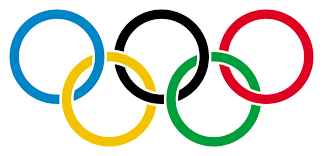

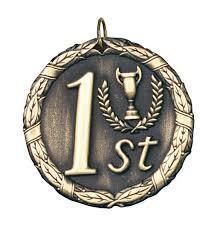
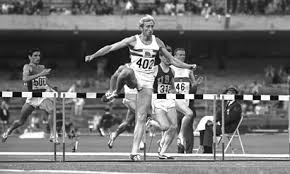
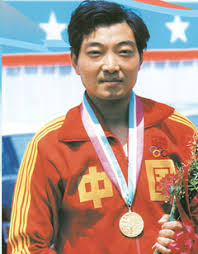

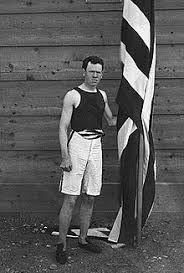


Tennis was played at the Olympics until 1924, then reinstituted in 1988.
Winter Olympic Games
In 1960, the Winter Olympic Games were held in Squaw Valley, California (United States). In order to bedazzle and impress the spectators, Walt Disney was head of the committee that organized the opening day ceremonies. The 1960 Winter Games Opening Ceremony was filled with high school choirs and bands, releasing of thousands of balloons, fireworks, ice statues, releasing of 2,000 white doves, and national flags dropped by parachute.
Russia Not Present
Though Russia had sent a few athletes to compete in the 1908 and 1912 Olympic Games, they did not compete again until the 1952 Games.
Motor Boating
Motor boating was an official sport at the 1908 Olympics
Extended Summer Olympics
In 1908, the Olympic games in London went on for more than six months, extending from April through October. The games were originally planned to be held in Rome, but two years before the start, Mount Vesuvius erupted and caused major damage in Naples. The Italian government chose to cancel their plans, and the games were moved to be a summer-long season in London.
Mohandas Gandhi as newspaper reporter
Mohandas Gandhi, Indian political and spiritual leader, once covered the 1932 Olympics hosted in Los Angeles as a newspaper reporter. Many, though, have questioned the credibility of this fact as Ghandi was still in prison by September of 1932. This makes it unlikely that he was at the Olympics as a newspaper reporter—but again, if it can’t be confirmed, it can’t be denied.
The Olympic rings
They are originally designed in 1912 by Baron Pierre de Coubertin, take into account every country in the world. At least one of the five colours on the Olympic rings—red, black, blue, yellow and green—appears in every country’s flag in the world. The five rings are also said to represent all the continents of the world; even though there are seven, the committee has divided the world into Asia, Africa, America, Europe, and Oceania
Gold medals real gold
Gold medals in the Olympics are not really made of real gold. The last Olympic medal to be made of pure gold was in 1912 in Sweden. All Games after that are made from silver and plated with a minimum of 6grams of gold.
Silver medals were awarded for first place
They were awarded for first place in the first Olympics. The Games hosted in Athens in 1896 awarded first place winners silver medals and second place bronze medals. Third place received nothing. Kind of harsh in my opinion, they could have at least gotten the dreadful ‘participation’ certificate. To make things even more absurd, the Games hosted in France in 1900 awarded winners paintings instead of gold medals. The French believed that paintings were more valuable than medals, and thus awarded winners according to what they deserved. For a second there, I thought I wanted a painting instead of a medal. Just for a second though.
First official suspension
The first official suspension wasn’t until the 1968 Games in Mexico City. Swedish pentathlete Hans-Gunnar Liljenwall was disqualified for his alcohol use. He reported that he had a couple beers to calm nerves before the pistol shooting session in the pentathlon. I guess he should have been more careful following the anti-doping regulations set in 1967.
China first medal
China didn’t win its first Olympic medal until 1984. It was Xu Haifeng from Fujian to break China’s bad run winning a gold medal in the 50 meter pistol event. Of course, the Chinese probably say history doesn’t matter—that it’s all about the now—which is understandable as they seem to win everything now.
Longest Olympics lasted 187
The longest Olympics lasted 187 days in London 1908. They started in April and continued on until October. What if it happens again this year? 187 days, being just a little more than 6 months, would mean the Games would go into January. Would it still be called London 2012 then? What about London 2012-13? Wait, what about the weather?
Well there you go! And you thought you knew everything about the Olympics, right? Just another fact to end things: the youngest Olympian was Dimitrios Loundras, aged 10. The oldest was Oscar Swahn, aged 72. Yes, ten and seventy-two! Makes you wonder what you’ve accomplished in life, doesn’t it…
First Modern Champion
James B. Connolly (United States), winner of the hop, step, and jump (the first final event in the 1896 Olympics), was the first Olympic champion of the modern Olympic Games.
The First Marathon
In 490 BCE, Pheidippides, a Greek soldier, ran from Marathon to Athens (about 25 miles) to inform the Athenians the outcome of the battle with invading Persians. The distance was filled with hills and other obstacles; thus Pheidippides arrived in Athens exhausted and with bleeding feet. After telling the townspeople of the Greeks' success in the battle, Pheidippides fell to the ground dead. In 1896, at the first modern Olympic Games, held a race of approximately the same length in commemoration of Pheidippides.
The Exact Length of a Marathon
During the first several modern Olympics, the marathon was always an approximate distance. In 1908, the British royal family requested that the marathon start at the Windsor Castle so that the royal children could witness its start. The distance from the Windsor Castle to the Olympic Stadium was 42,195 meters (or 26 miles and 385 yards). In 1924, this distance became the standardized length of a marathon.




0 comments:
Post a Comment